
Exciting new series on “Voice, Body and Movement for Lawyers – How to connect with the jury and find Justice Through Dramatic Technique!”
Click here to find out more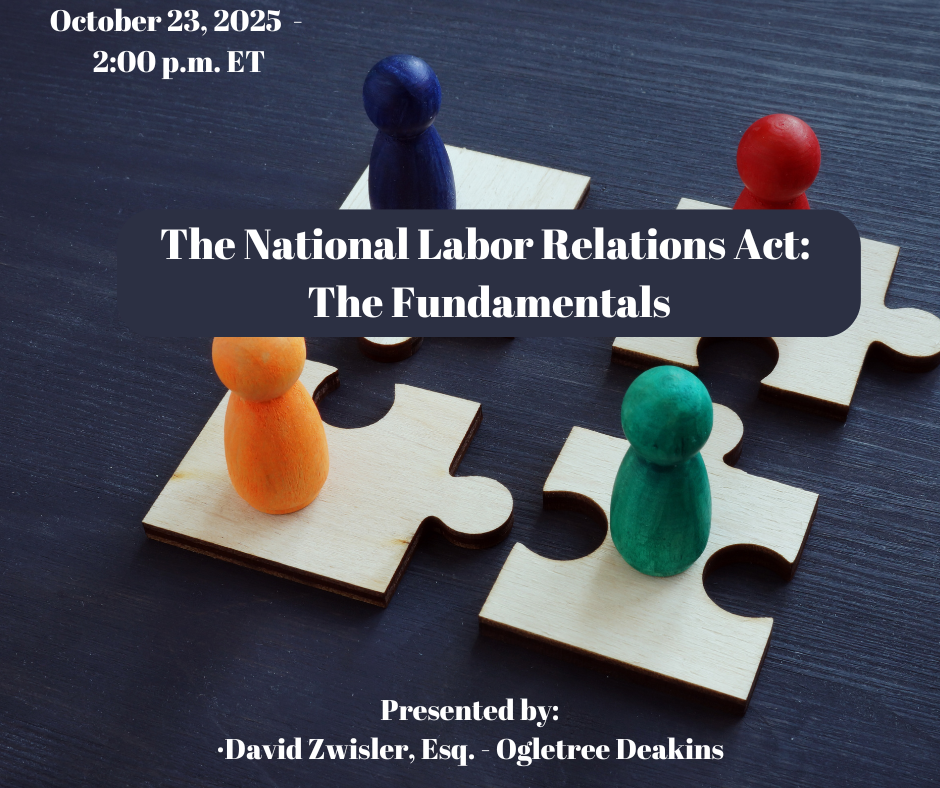
Passed in 1935, the National Labor Relations Act (NLRA) provides rights and protections to almost all of the private sector workforce. The NLRA does not just apply to unionized workforces. Employees without a union are also protected. The interpretation of the law is constantly evolving. Understanding the foundations of the NLRA, the basics of the Act, how the National Labor Relation Board functions, and how unfair labor practice charges and union organizing petitions are processed is essential. Because this is not a static area of the law, being aware of the recent changes is critical. Among other things, the NLRA has significant impacts noncompete agreements, settlement and severance agreements, and handbook policies. The process by which unions are certified is also in flux. Individuals who practice in the area of employment law should be aware of NLRA’s broad reaching scope. This session will provide those fundamentals.
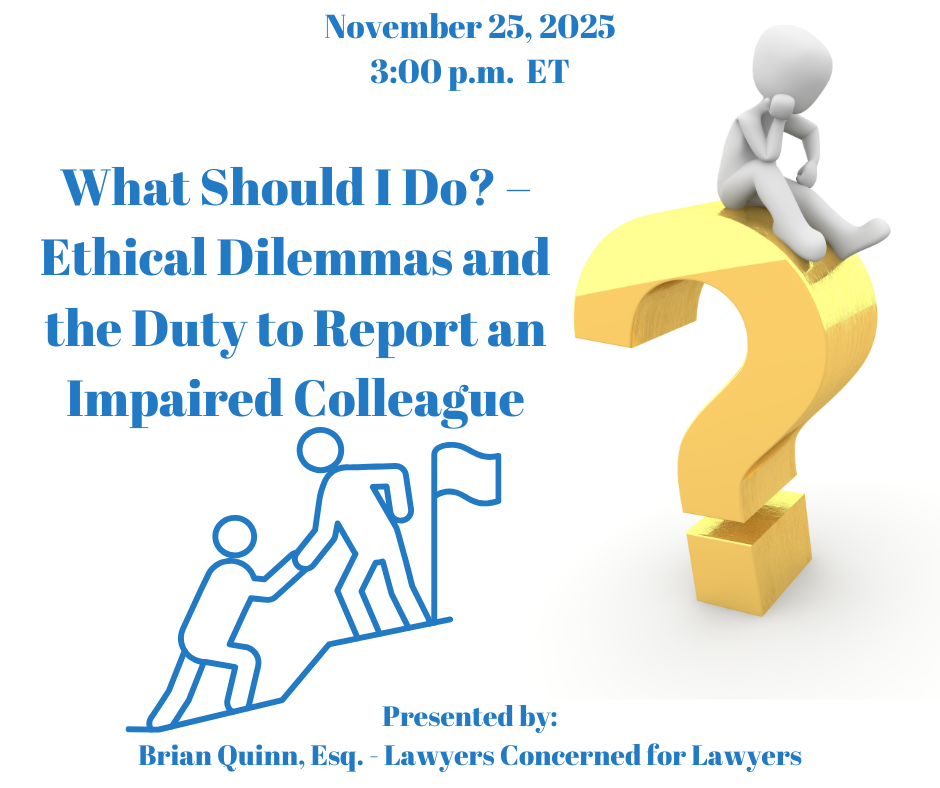
"I think he drinks too much - but he's my boss!" “She's the firm's rainmaker, but something i...
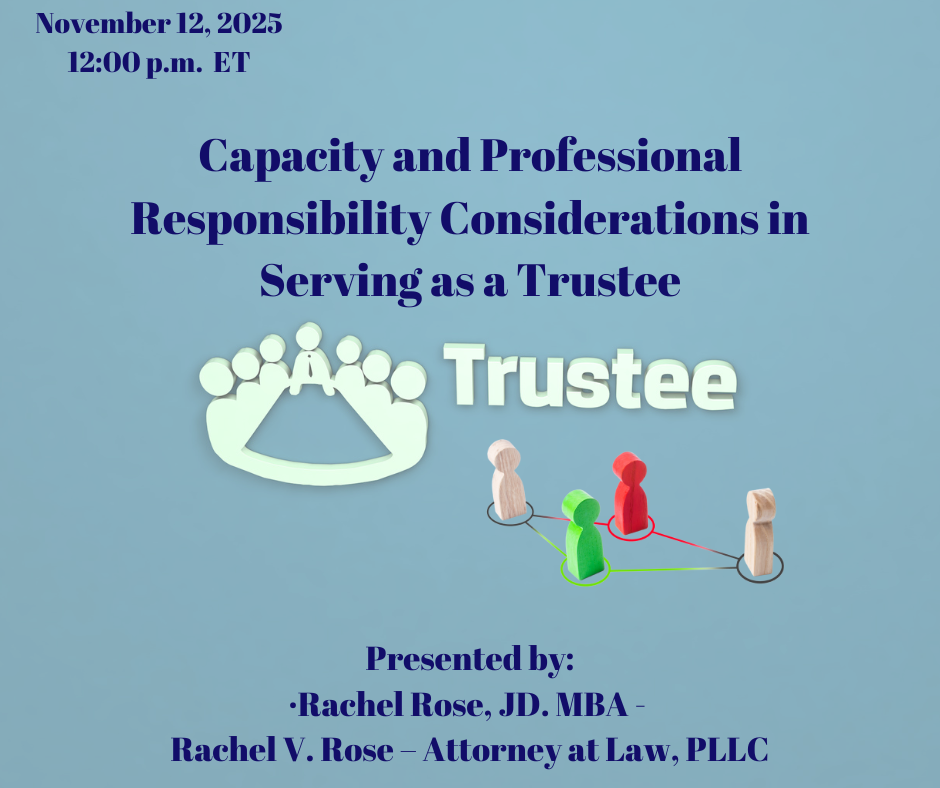
Decision making capacity and professional responsibility should be at the top of every attorney's li...
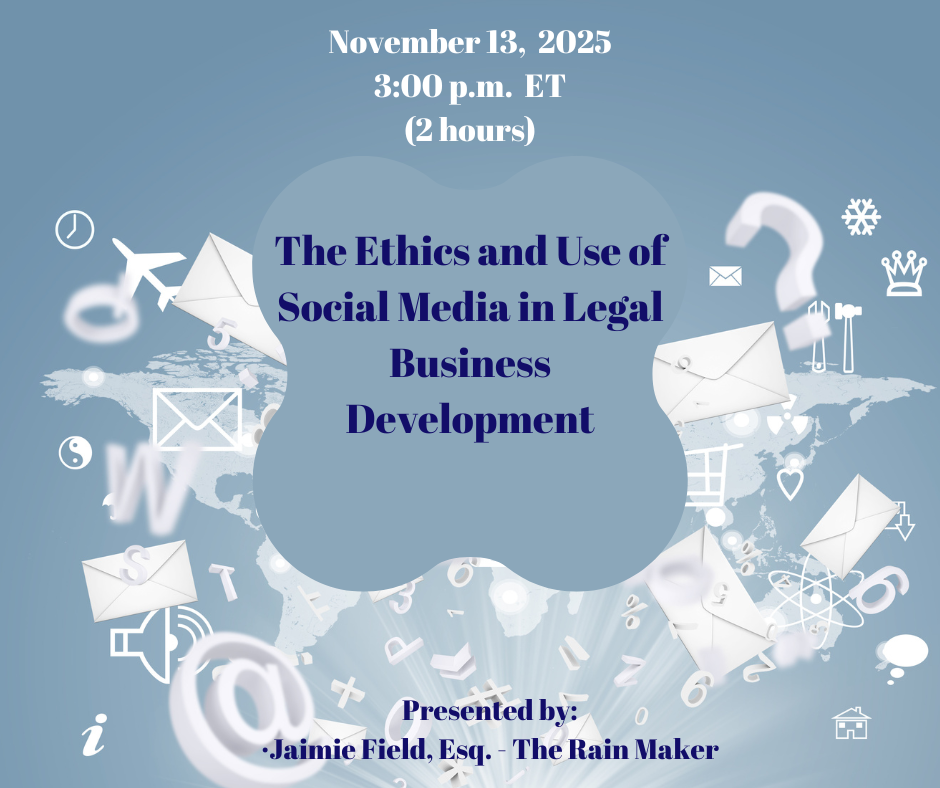
Social media is no longer optional for lawyers who want to build and sustain a thriving practice&mda...
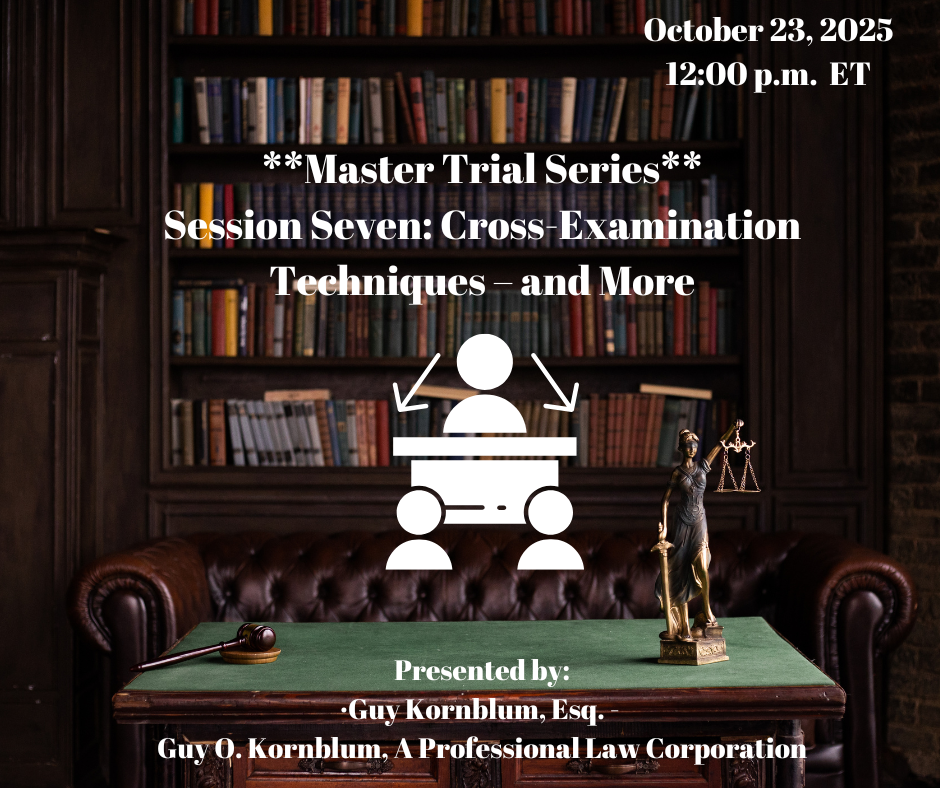
Session 7 of 10 - Mr. Kornblum, a highly experienced trial and litigation lawyer for over 50 years, ...
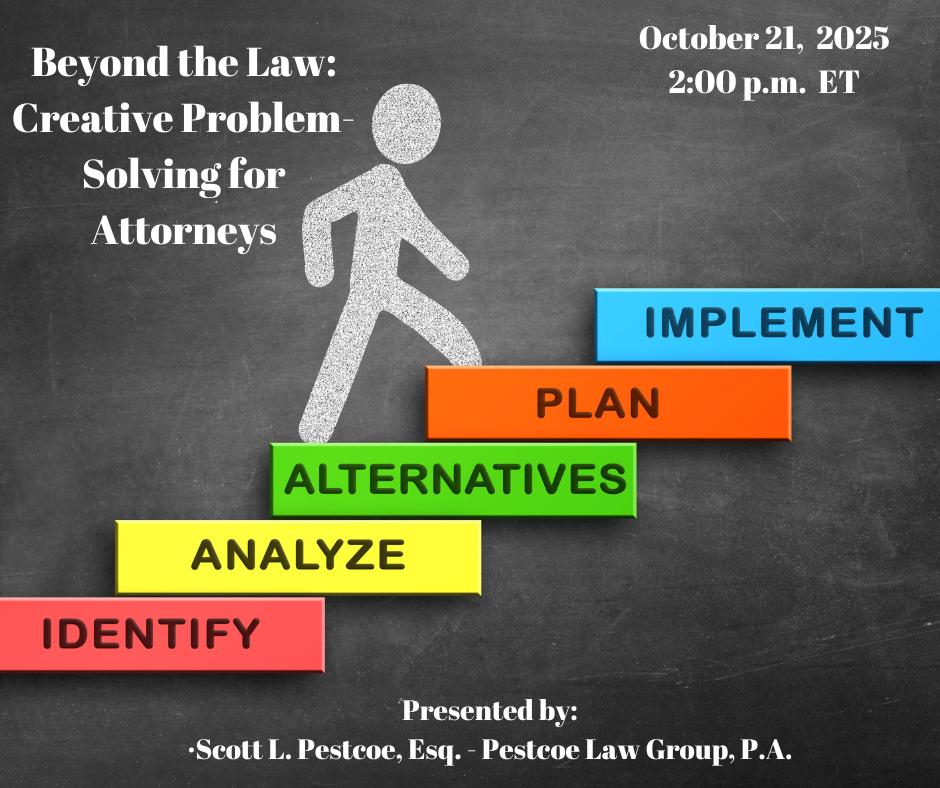
In the fast-paced, ever-evolving legal landscape, lawyers must go beyond traditional litigation and ...
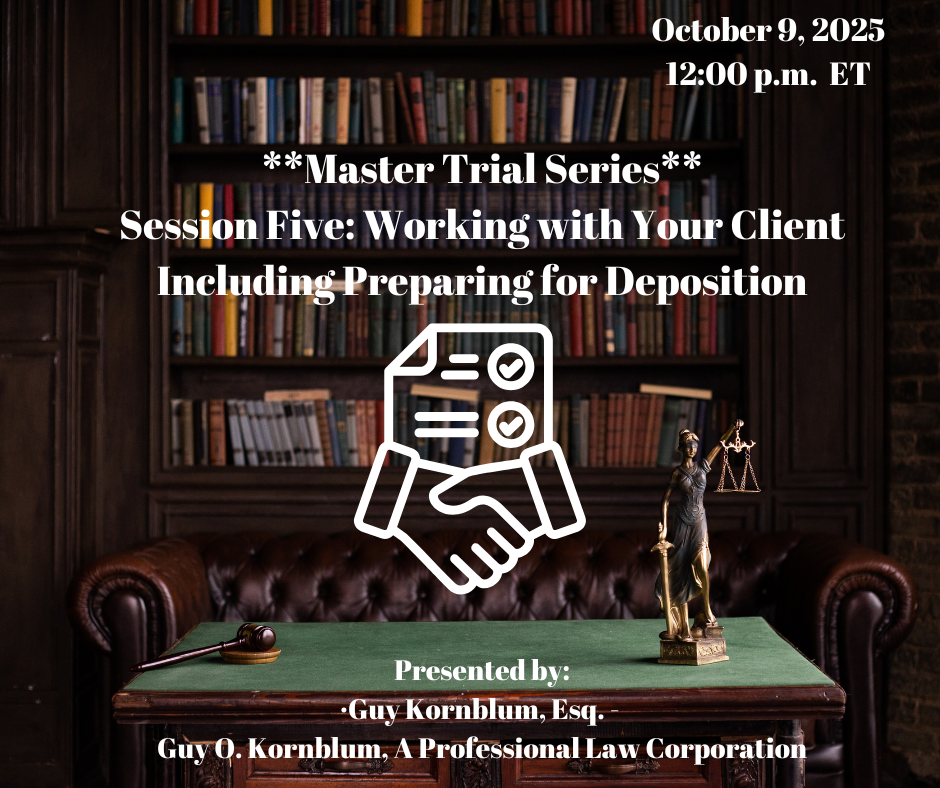
Session 5 of 10 - Mr. Kornblum, a highly experienced trial and litigation lawyer for over 50 years, ...

Our panelists will review your deposition strategy in personal injury cases from primarily the plain...
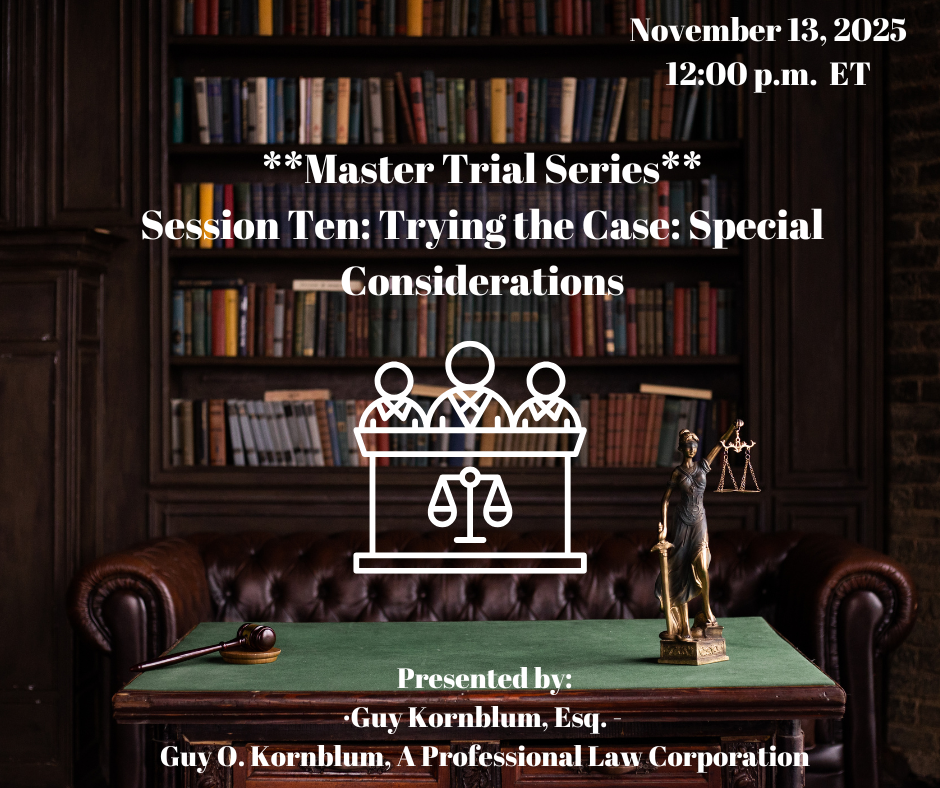
Session 10 of 10 - Mr. Kornblum, a highly experienced trial and litigation lawyer for over 50 years,...
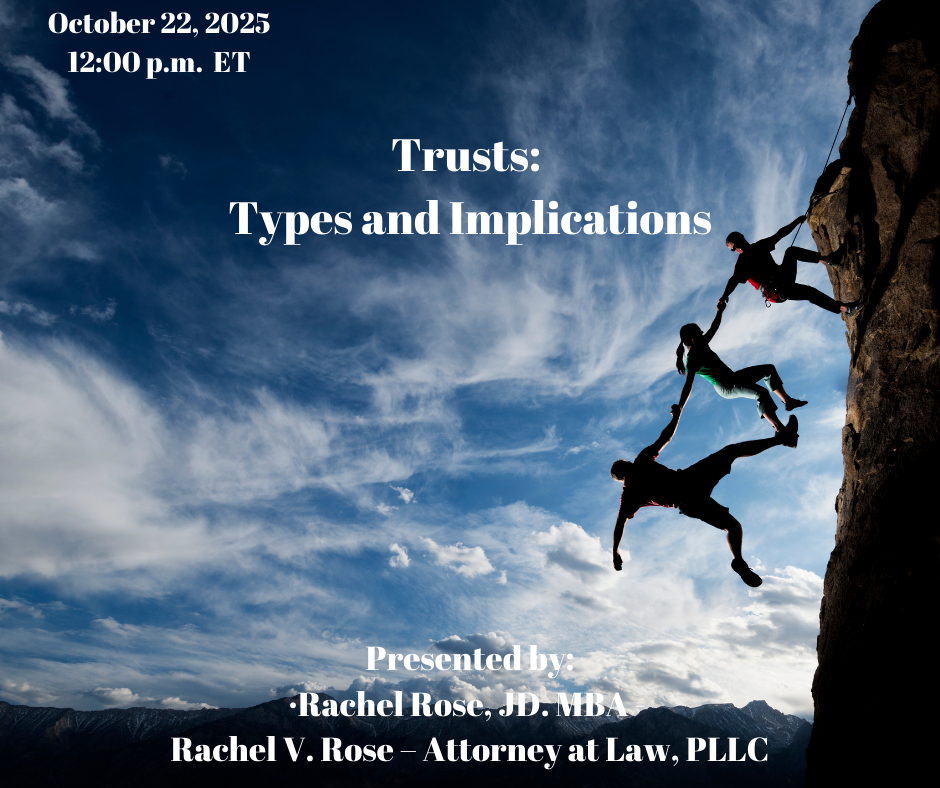
Revocable versus irrevocable, dynasty versus by-pass and special needs versus Medicaid asset protect...
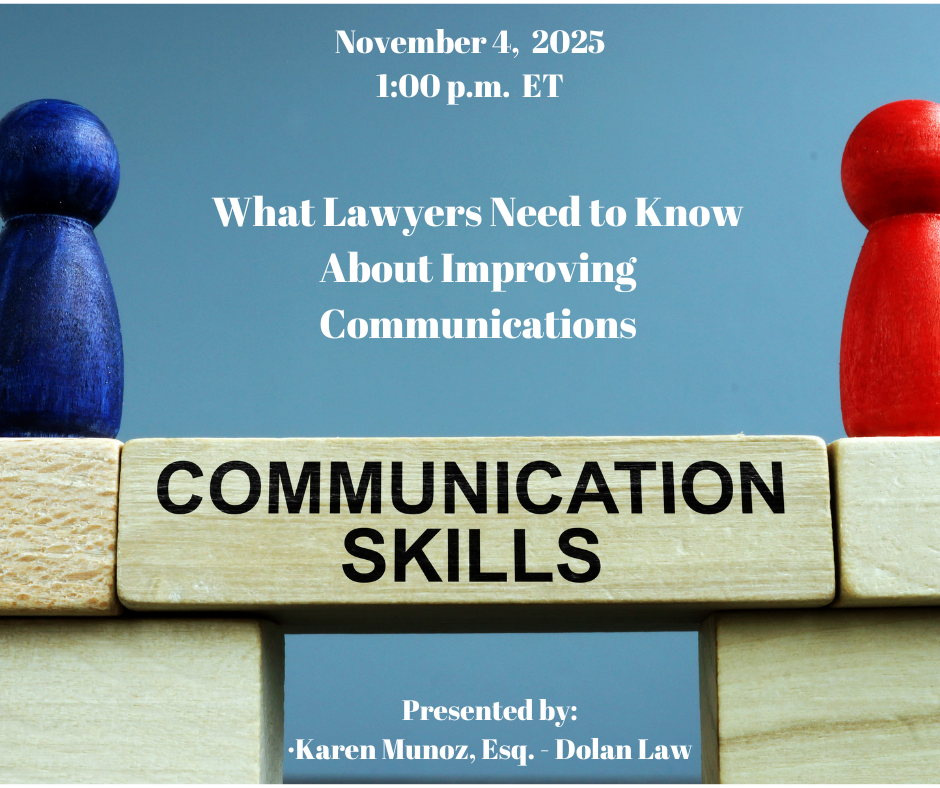
Clear, confident communication is one of the most powerful tools a lawyer can have, yet it’s o...